How Your Social Media Posts Could Impact Your US Student Visa Approval

The United States Department of State has initiated an immediate suspension of new student visa interviews at embassies and consulates worldwide, a move poised to disrupt the academic aspirations of thousands of international students, including those from Kenya.
The directive, instigated under the Trump administration and spearheaded by Secretary of State Marco Rubio, is part of an intensified effort to scrutinise the social media activities of prospective students. The policy change, communicated through a diplomatic cable, halts the scheduling of additional interviews for F, M, and J visas, which cover students and exchange visitors. While previously scheduled interviews will proceed as planned, the indefinite delay has created considerable uncertainty for students intending to begin their studies at American universities by the commencement of the academic year in September.
Expanded Social Media Scrutiny
The US government has implemented a revised screening process requiring student visa applicants to disclose their social media handles across various platforms, including Facebook, X (formerly Twitter), and WhatsApp. The policy means that online posts related to politics, activism, or even humour are now subject to review, potentially influencing visa decisions. Specific criteria for determining what constitutes a red flag have not been provided, but historical cases suggest that controversial or politically sensitive content could lead to additional scrutiny or outright visa denial.
The Trump administration defends the expanded social media scrutiny as a necessary measure for national security, citing the need to prevent individuals who may promote antisemitism or pose security risks from entering the country. However, critics argue that the policy disproportionately affects students from countries with high social media engagement, such as Kenya, where internet users spend an average of four hours daily on social platforms, substantially exceeding the global average.
Impact on Kenyan Students and Visa Processing
Kenyan students, recognised as among the most active social media users globally, are expected to face increased scrutiny under the new policy. Delays in visa interviews could disrupt their academic plans, particularly as many American universities and colleges prepare to commence their academic year in September. The uncertainty surrounding the timeline for resuming interviews has left students and their families anxious, especially those who have already made financial commitments.
Visa processing delays are not unprecedented, but the added layer of social media screening is expected to extend wait times considerably. Background checks, particularly for students in STEM fields such as engineering and artificial intelligence, may take weeks or even months longer than usual. The decision-making process may also be influenced by past visa rejections, whether for the applicant or their family members, potentially leading to higher refusal rates.
According to data from Visagrader.com, between 2018 and 2022, at least 5,725 F1 student visas were issued in Nairobi. The approval rate has fluctuated over the years, with 65.03% of applicants receiving visas in 2018 compared to 63.75% in 2023. The rejection rate has remained significant, with 36.25% of applicants denied visas last year. The new screening measures could further impact these figures, making it more challenging for Kenyan students to secure visas.
Broader Context and Policy Shifts
The Trump administration has consistently sought to tighten immigration policies, including restrictions on student visas. In 2019, the Department of State updated its visa application forms to require social media identifiers from most applicants, citing national security concerns. The latest directive builds on these measures, signalling a continued push for more rigorous vetting.
Rubio, a vocal advocate for stricter immigration controls, recently emphasised the administration's stance on student visas. During a Senate Foreign Relations Committee hearing on May 20, he stated, "A visa is not a right, it's a privilege," adding that the government would revoke visas of individuals who disrupt higher education institutions. His remarks suggest that the administration is prepared to take further action against students deemed problematic based on their online activity.
The policy shift comes amid broader tensions between the U.S. government and international students. Just days before the visa interview pause, the Department of Homeland Security attempted to block Harvard University from enrolling foreign students, citing non-compliance with requests for records of their campus activities. The move was temporarily halted by a federal judge after Harvard filed a lawsuit against the administration.
Concerns Over Academic Freedom
The increased scrutiny of international students has led to concerns about academic freedom and self-censorship. Many students, particularly those from China, have reported altering their online behaviour to avoid attracting attention from US authorities. The fear of visa denials or revocations has prompted some to limit their engagement in political discussions or activism.
With over a million international students enrolled in US institutions for the 2023-2024 academic year, the new restrictions could further reduce enrollment numbers. The number of international students has already declined by 11% over the past year, and experts predict that Trump's latest policies will accelerate this trend. The potential decrease in foreign student enrollment could have economic implications, as international students contribute significantly to tuition revenue and research funding at American universities.
Uncertain Future for Kenyan Students
For Kenyan students aspiring to study in the US, the road ahead remains uncertain. The indefinite pause on visa interviews, coupled with the expanded social media screening, adds new hurdles to an already complex application process. Students must now navigate the challenge of ensuring their online presence does not jeopardise their chances of securing a visa.

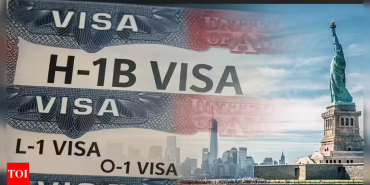
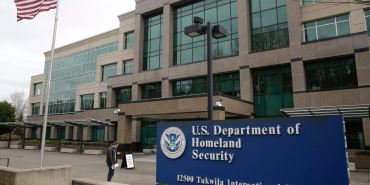
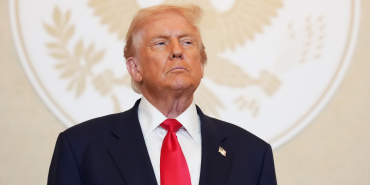
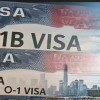
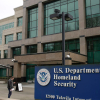

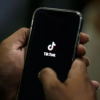
Add new comment